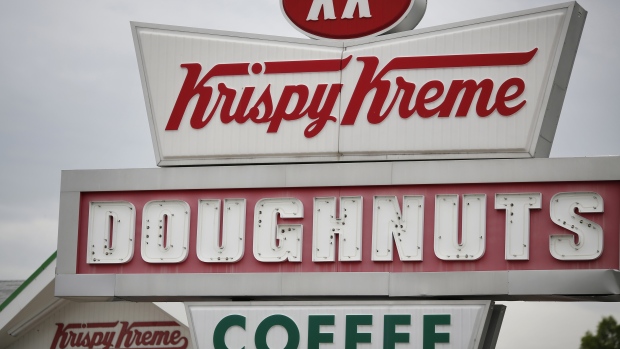Mar 26, 2019
Billionaire Reimann family that owns Krispy Kreme confronts Nazi past
, Bloomberg News

Some of Germany’s wealthiest families have long been tainted by Nazi ties: The Quandts (BMW), the Krupps (steel), and the Flicks (mining and machinery) have grappled with a legacy of cooperation with the Third Reich’s economic machine.
Now, the dynasty behind Panera Bread and Krispy Kreme Doughnuts faces a similar reckoning.
The Reimann family -- whose JAB Holding Co. owns the chains as well as a host of other brands -- used Russian civilians and French prisoners of war as forced labour for their businesses and private villas in the Nazi era, according to a German newspaper report.
They donated to Nazi organizations as early as 1931, and Albert Reimann Jr., the primary source of his descendants’ multibillion-dollar fortune, once complained about the French prisoners’ work rate, Bild am Sonntag reported Sunday.
The family commissioned a historian early this century to probe their ancestry following a 1978 article that mentioned its links to the Nazis, according to a family spokeswoman. That report will be completed and made available in 2020. After discovering the extent of their ancestors’ Nazi ties, the Reimanns pledged 10 million euros (US$11 million) to a charity, though they didn’t say who would receive the money.
The decision was “spontaneous, because the family was absolutely ashamed,” the spokeswoman said.
Biggest Fortunes
Some of Germany’s biggest fortunes trace back to the Nazi era. The US$36 billion combined wealth of Susanne Klatten and Stefan Quandt, major shareholders of Bayerische Motoren Werke AG, has ties to an industrial empire that built firearms and anti-aircraft missiles for the Third Reich’s war machine. Likewise, Viktoria-Katharina Flick and twin brother Karl-Friedrich Flick are among the world’s youngest billionaires through a fortune that heralds from another Nazi weapons manufacturer.
It took decades for most German companies to publicly acknowledge their role in Nazi Germany and the Holocaust. But in 2000, 6,500 German companies created a foundation that along with the German state raised more than 5 billion euros for survivors of Nazi atrocities and slave labor.
The Reimann family’s charitable gift represents a fraction of its JAB fortune. Five family members -- Wolfgang Reimann, Renate Reimann-Haas, Stefan Reimann-Andersen, Matthias Reimann-Andersen and Andrea Reimann-Ciardelli -- are worth at least US$10 billion combined, according to the Bloomberg Billionaires Index.
The Reimann fortune had its beginnings in 1828, when Ludwig Reimann, a chemist, joined Johann Adam Benckiser at the chemical company he founded five years earlier in Pforzheim, Germany. In 1858, Reimann moved the operation to Ludwigshafen, Germany. Reimann Jr. joined the firm in 1923, at the age of 25, helping to run the company alongside his father and uncles.
During the 1950s and 1960s, Reimann Jr. transformed the business, introducing products such as Kukident denture adhesive cream in 1962, and Calgonit dishwasher detergent in 1964. In 1981, he hired Peter Harf, a former management consultant with a doctorate in economics from Cologne University and an MBA from Harvard Business School.
In 1997, JAB sold shares of Benckiser NV, maker of household cleaning products Vanish and Cillit Bang, on the Amsterdam Stock Exchange. Two years later, the company merged with British consumer-goods outfit Reckitt & Colman Ltd. to create Reckitt Benckiser.
JAB has since diversified and spent about US$60 billion in the past decade building a coffee and soft drinks empire.


